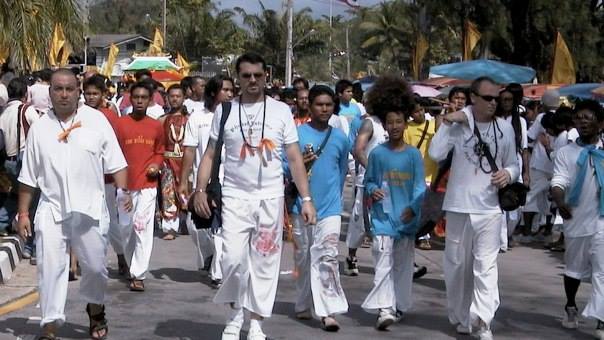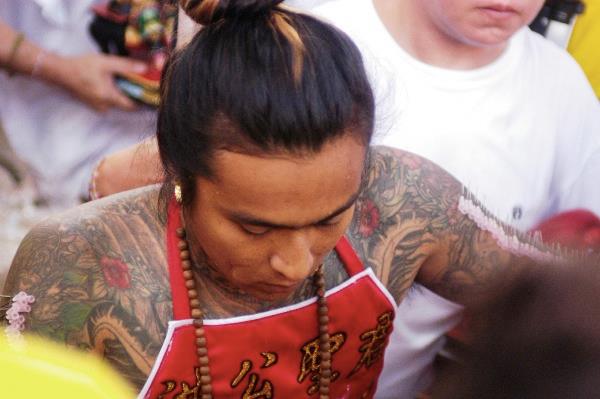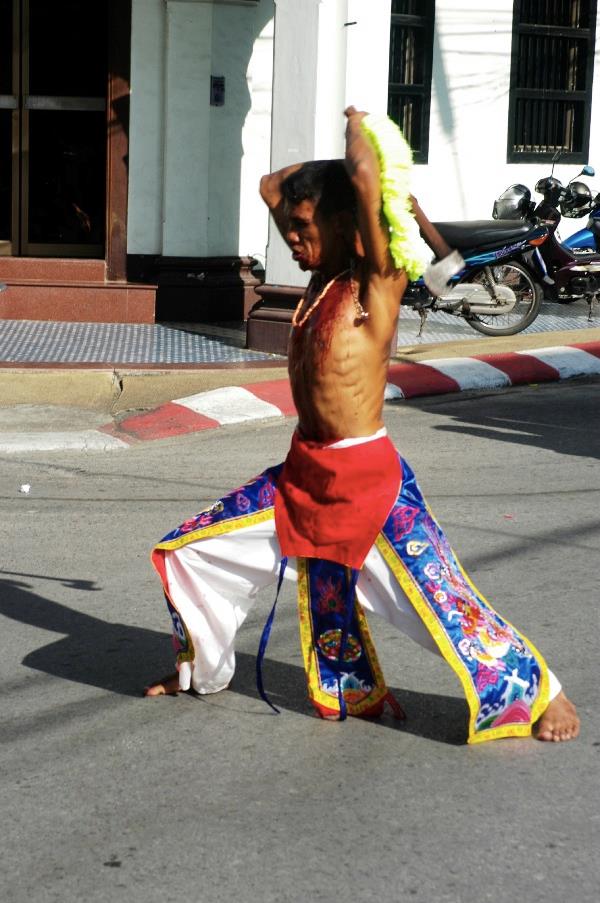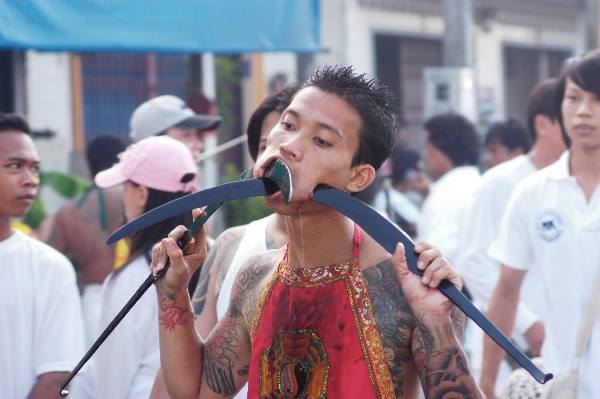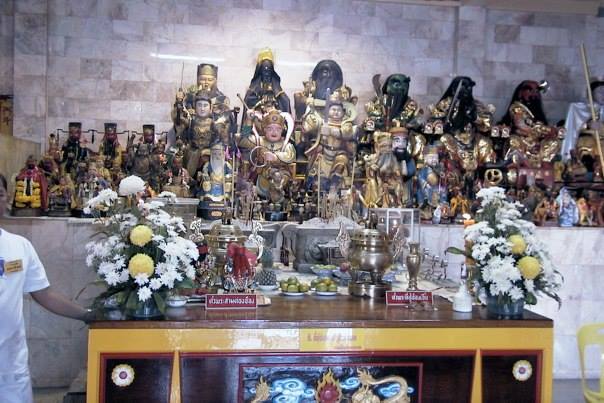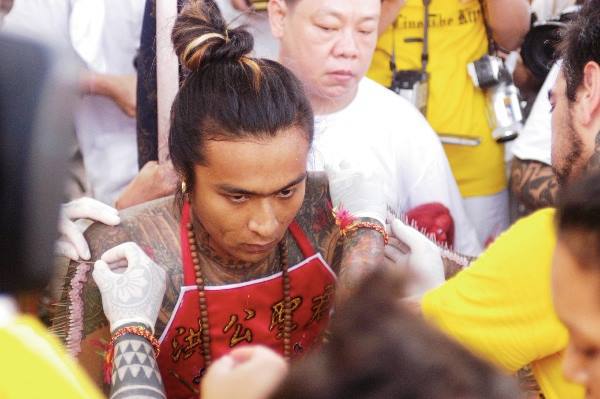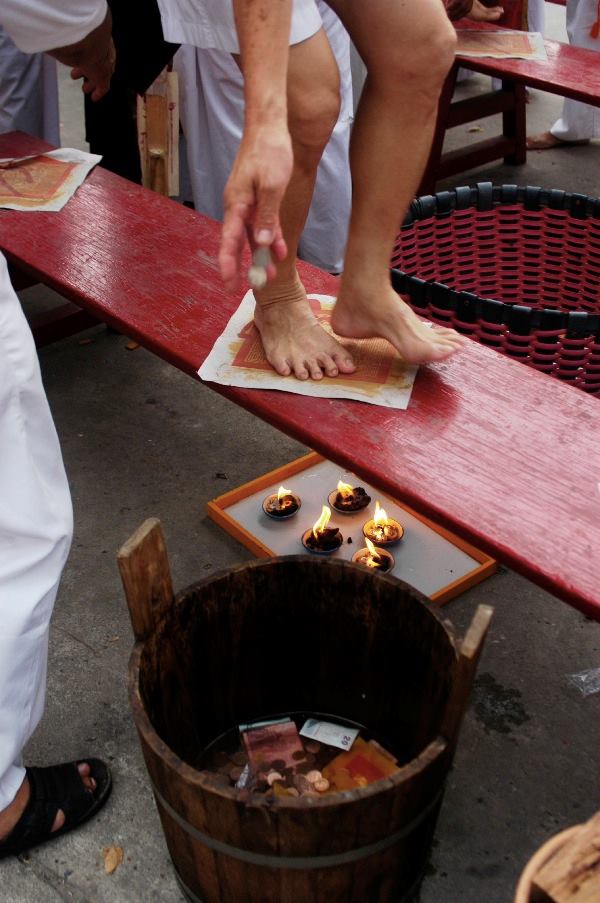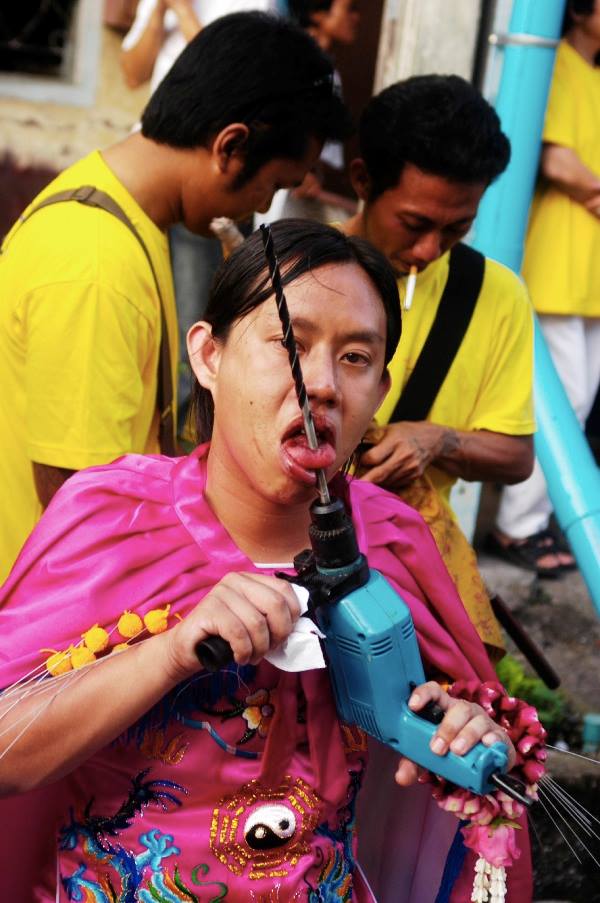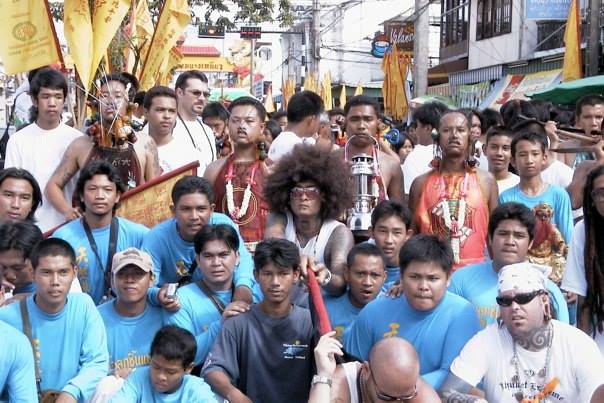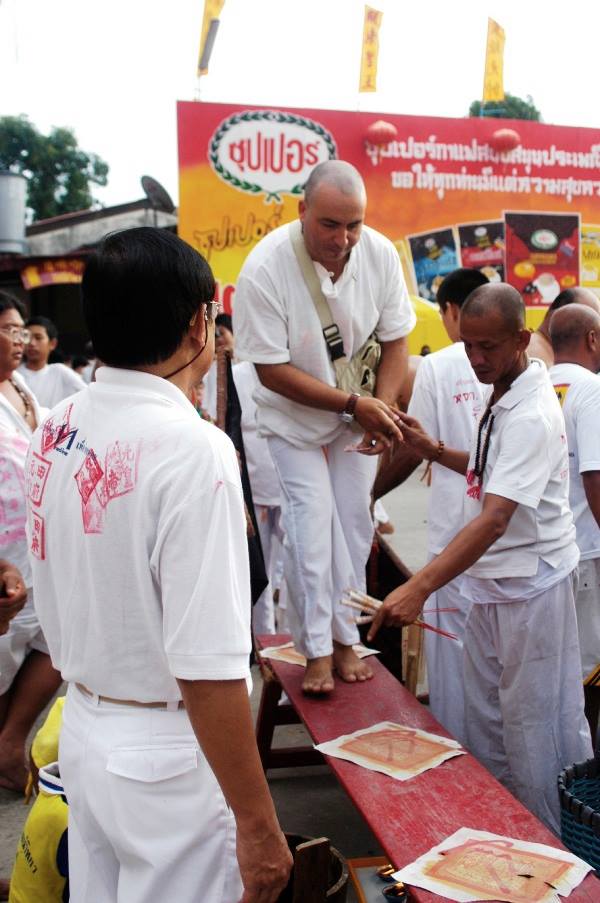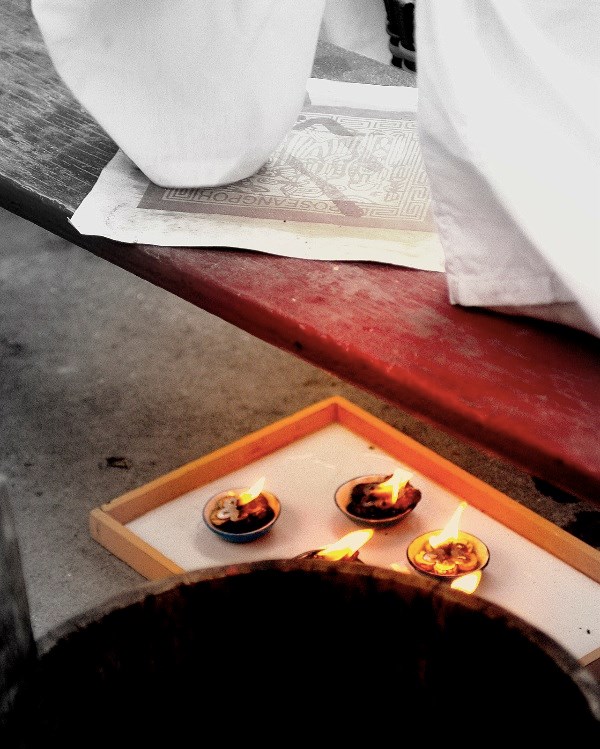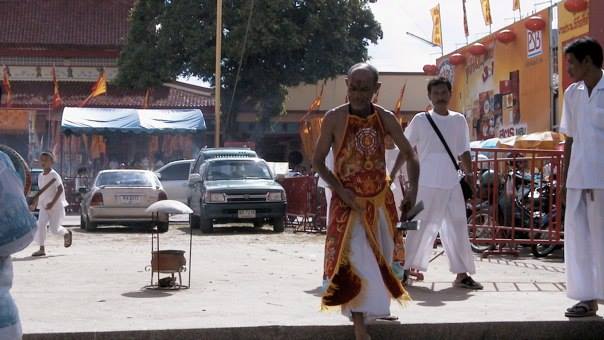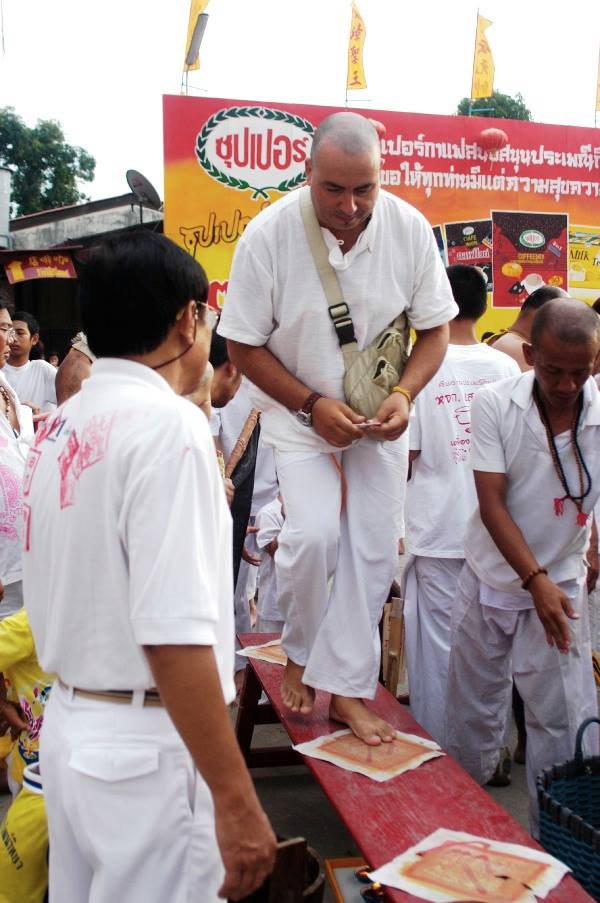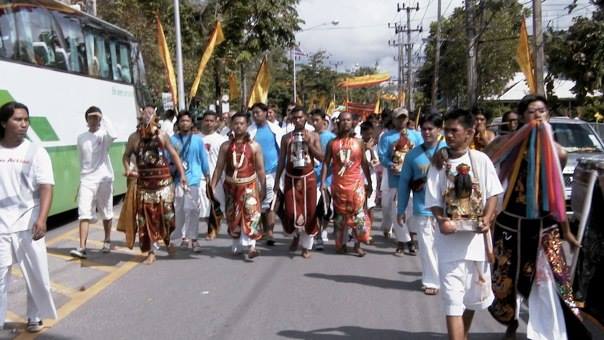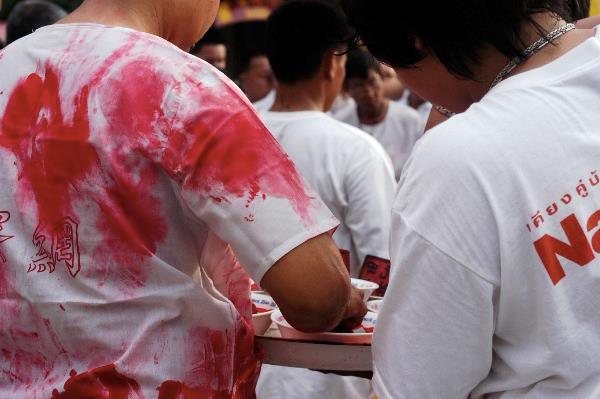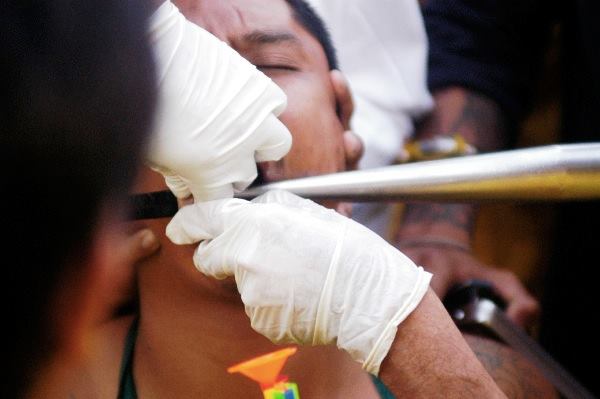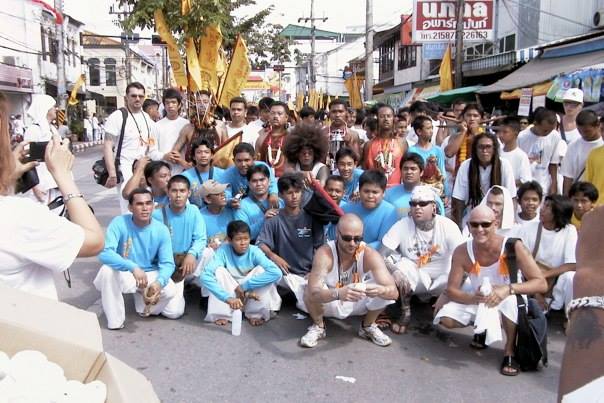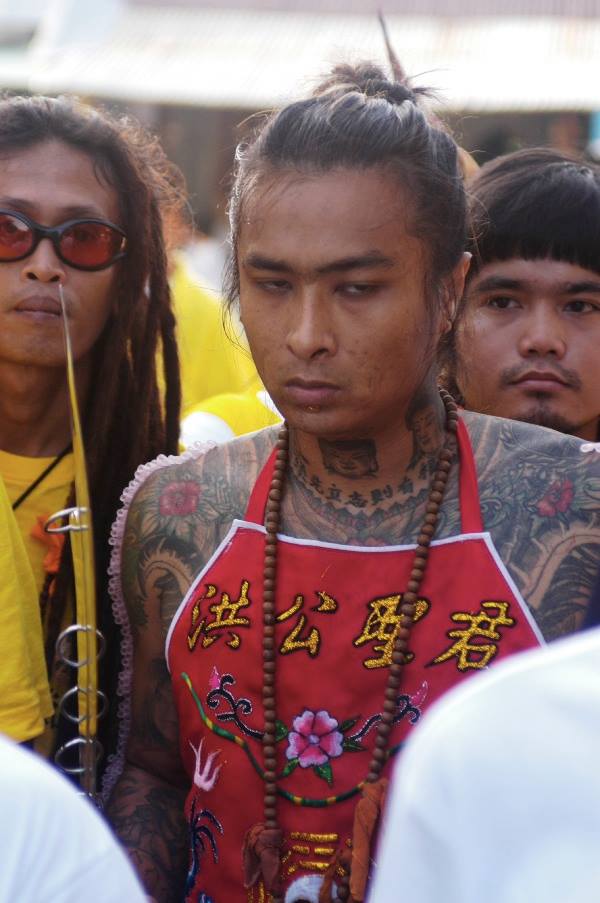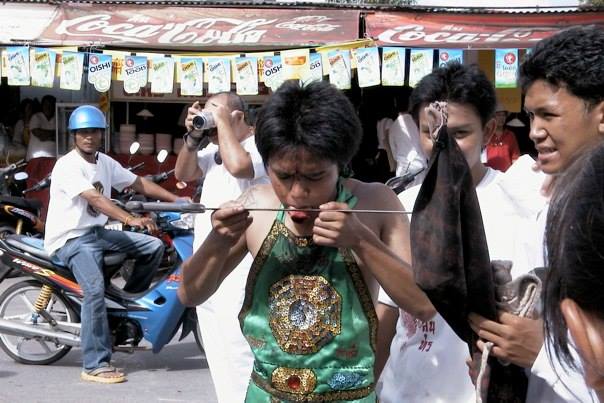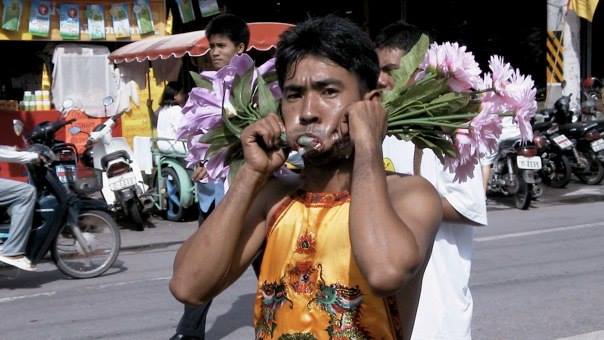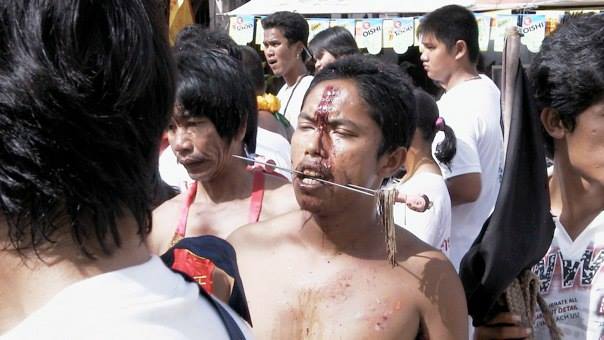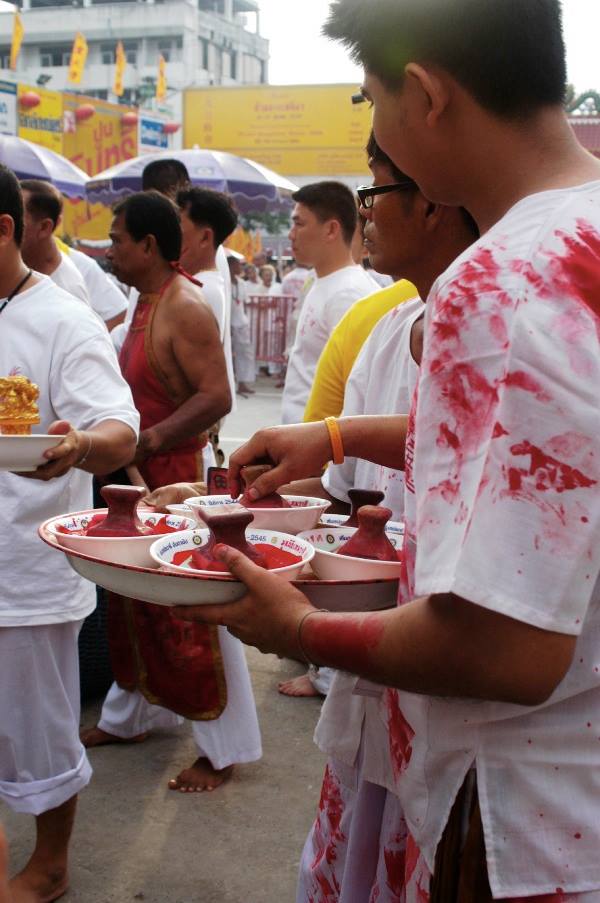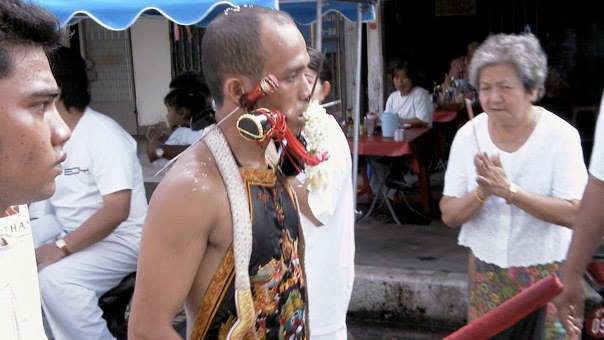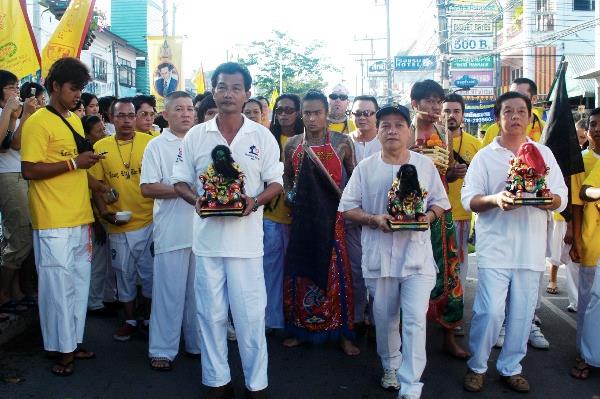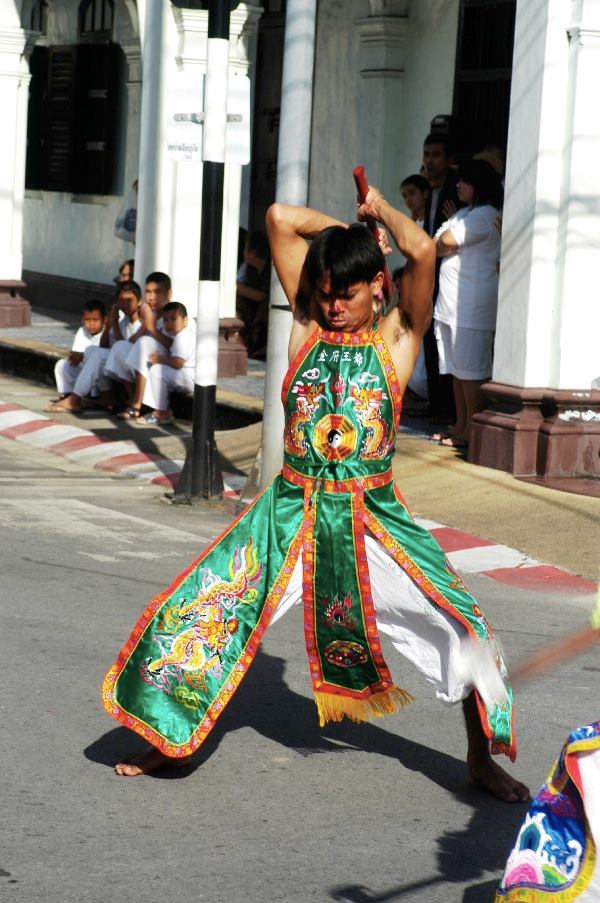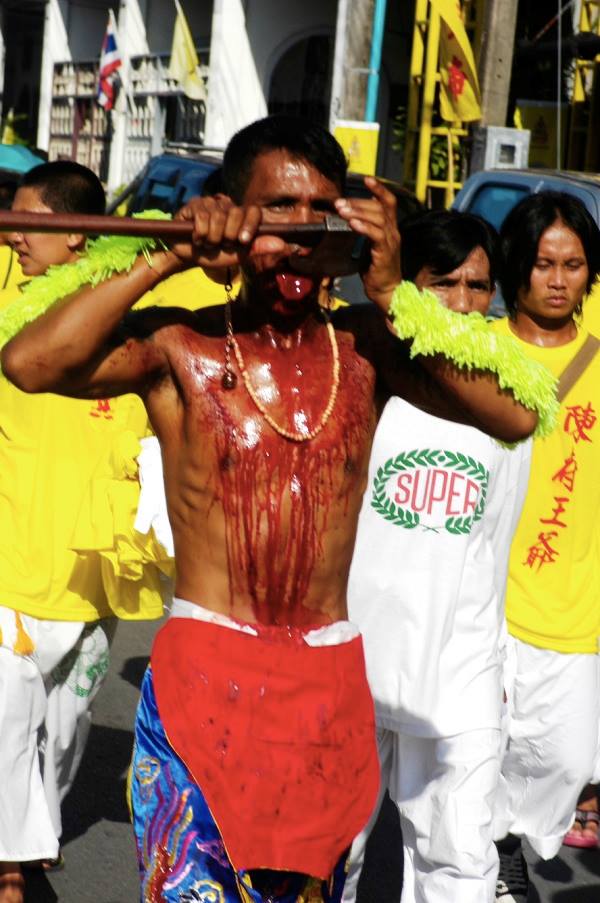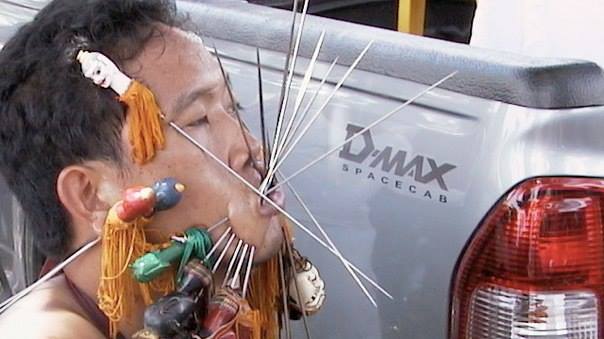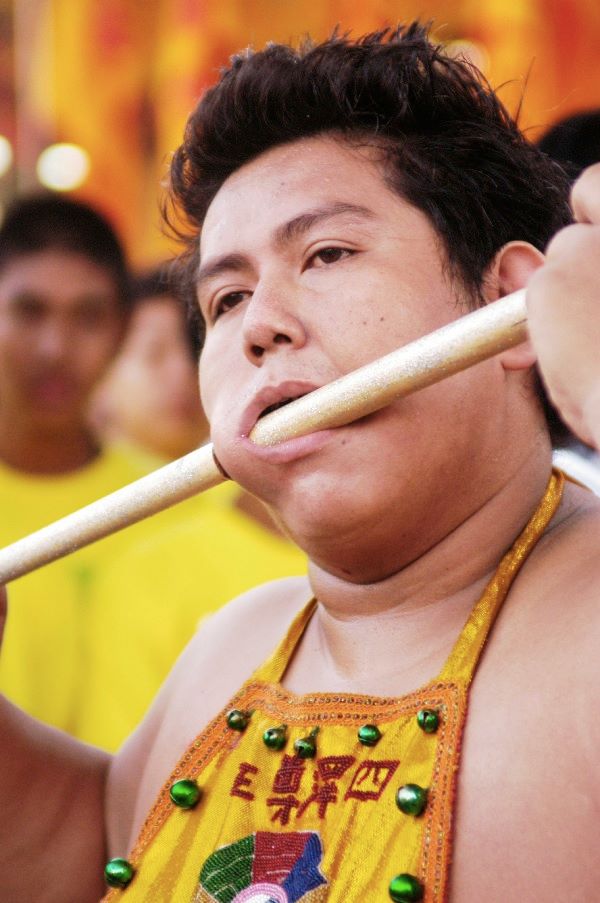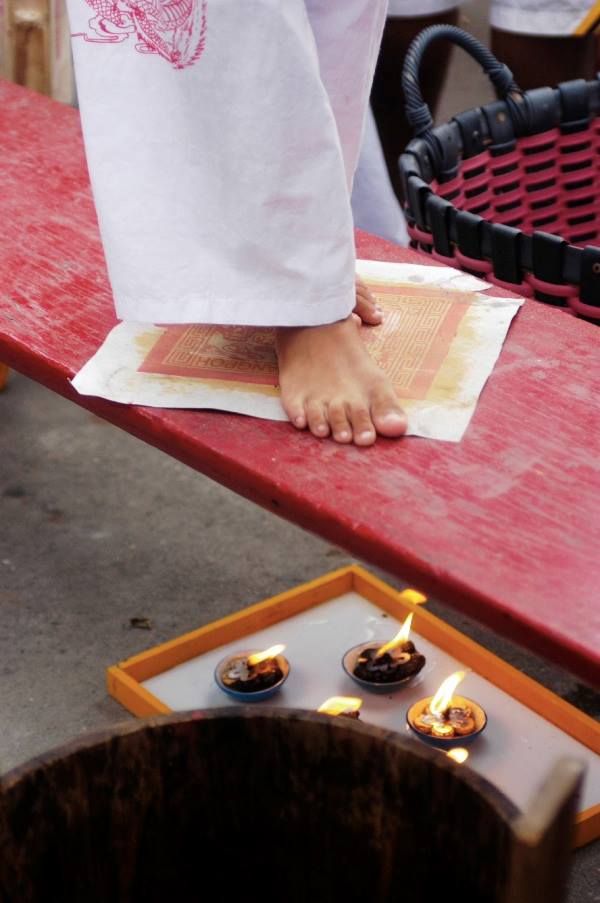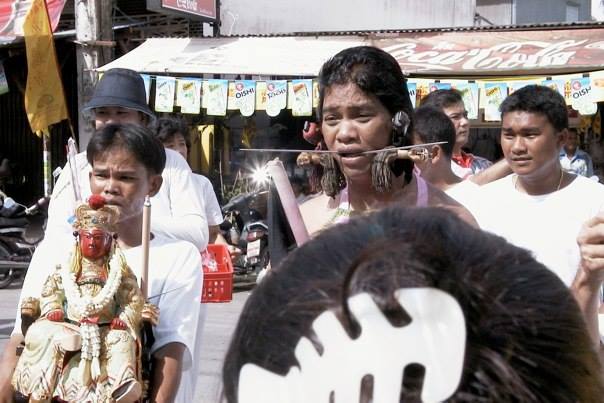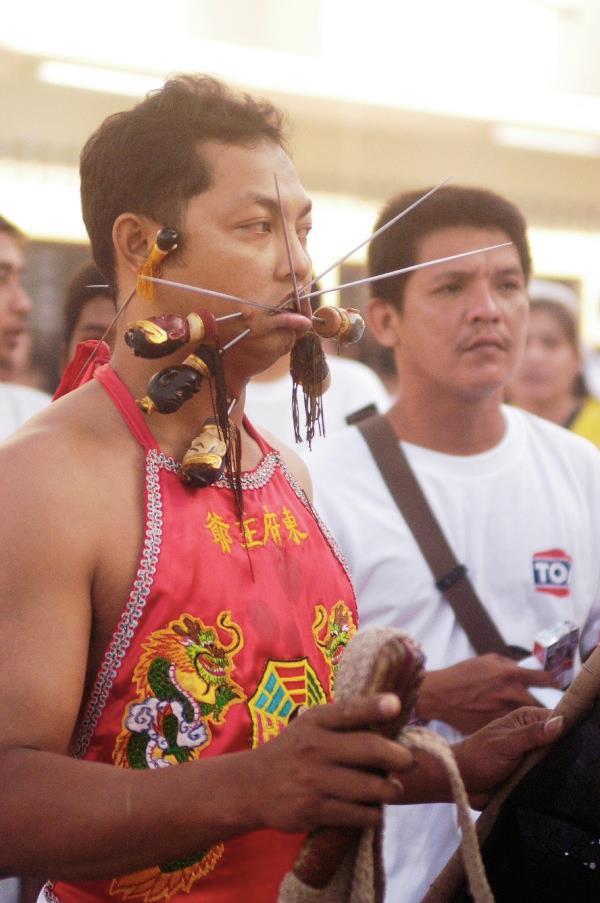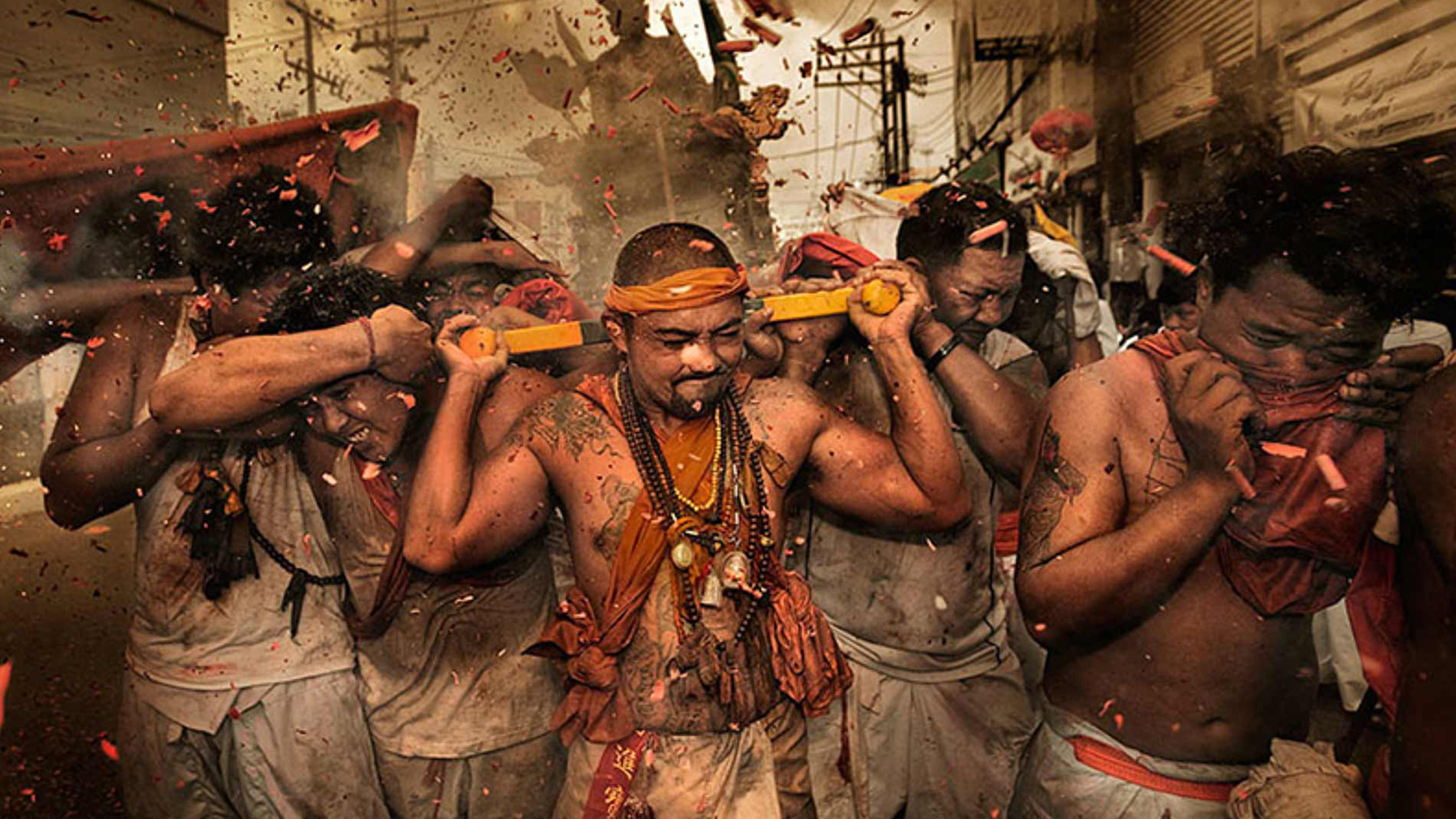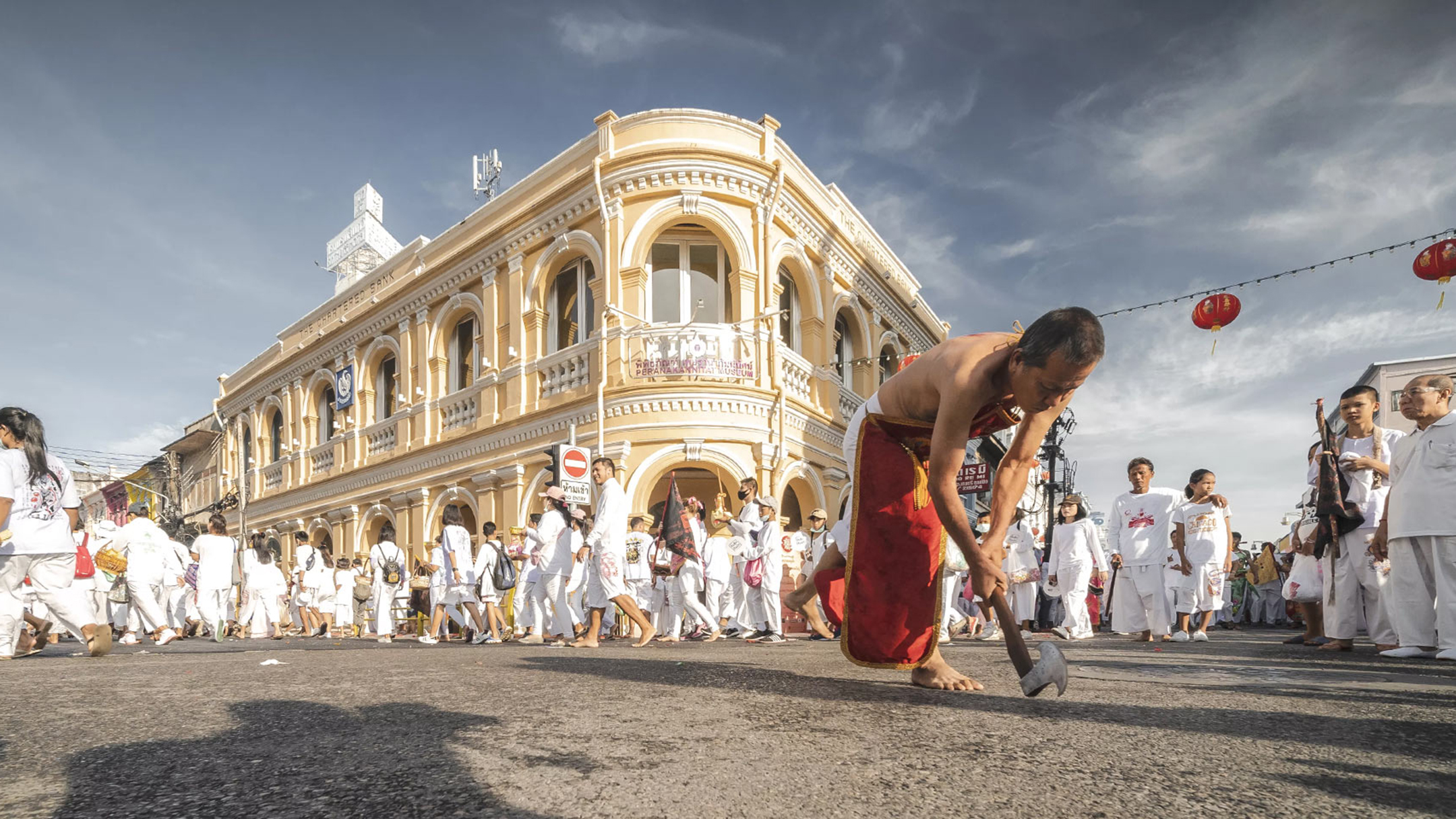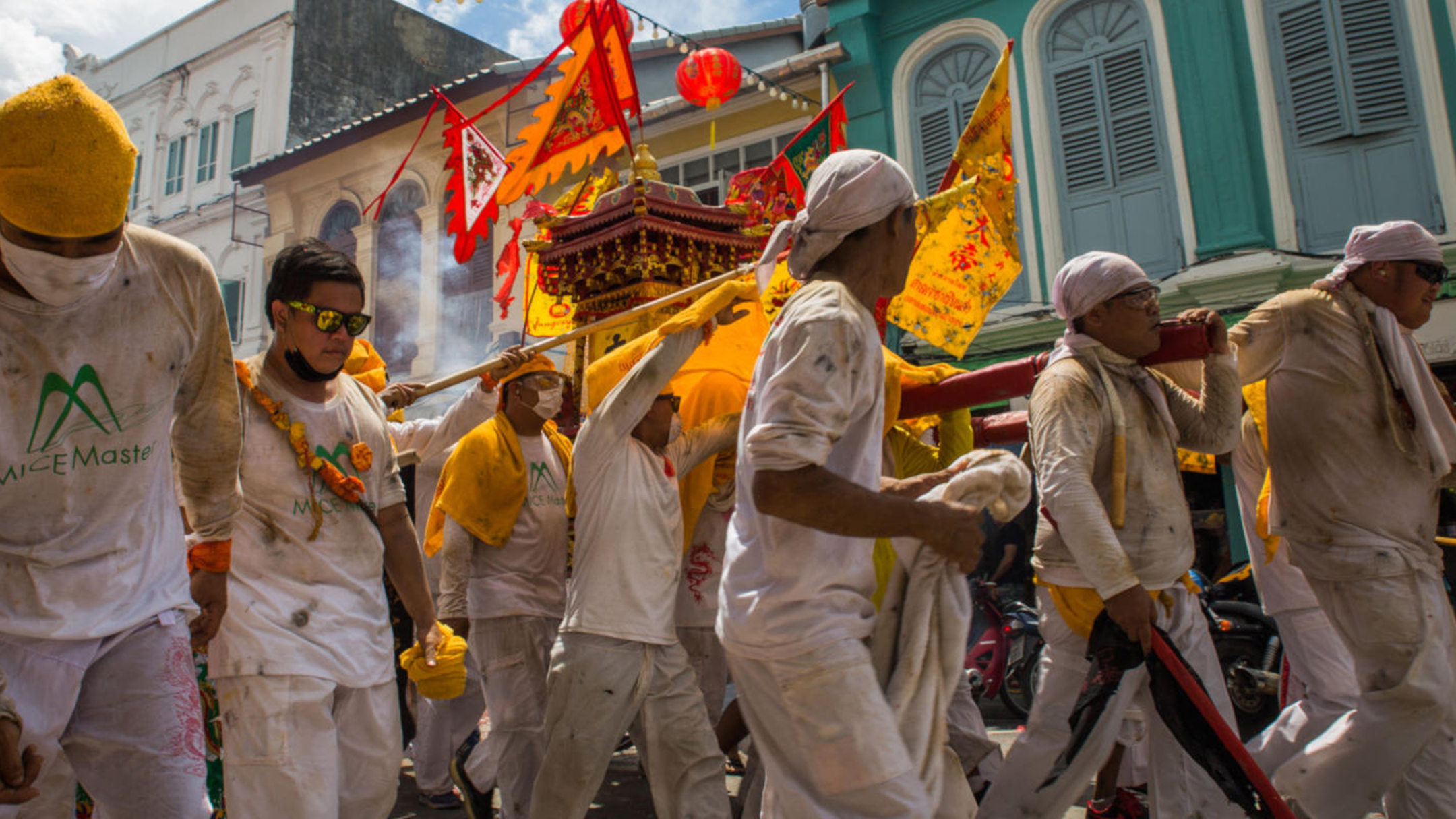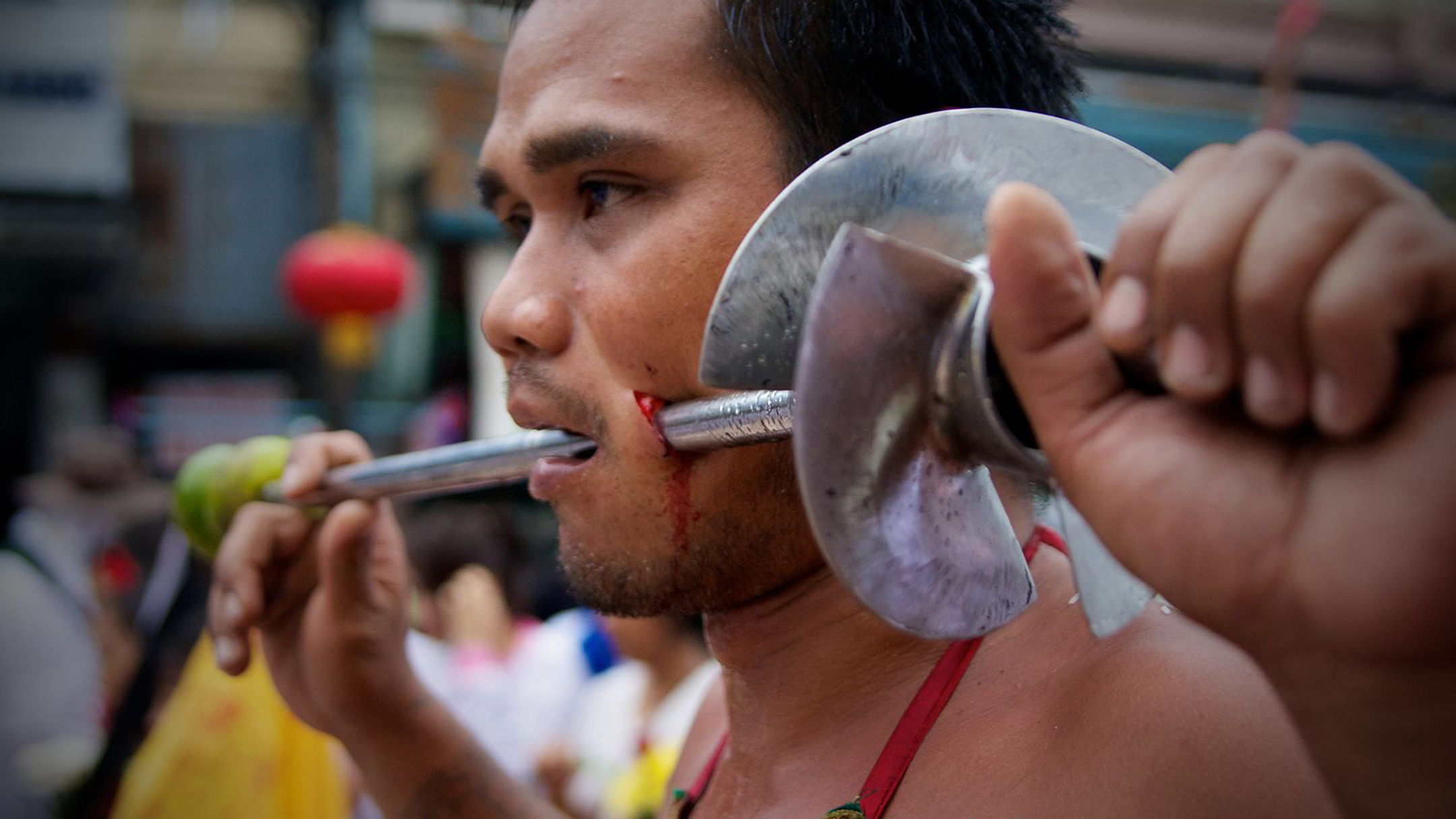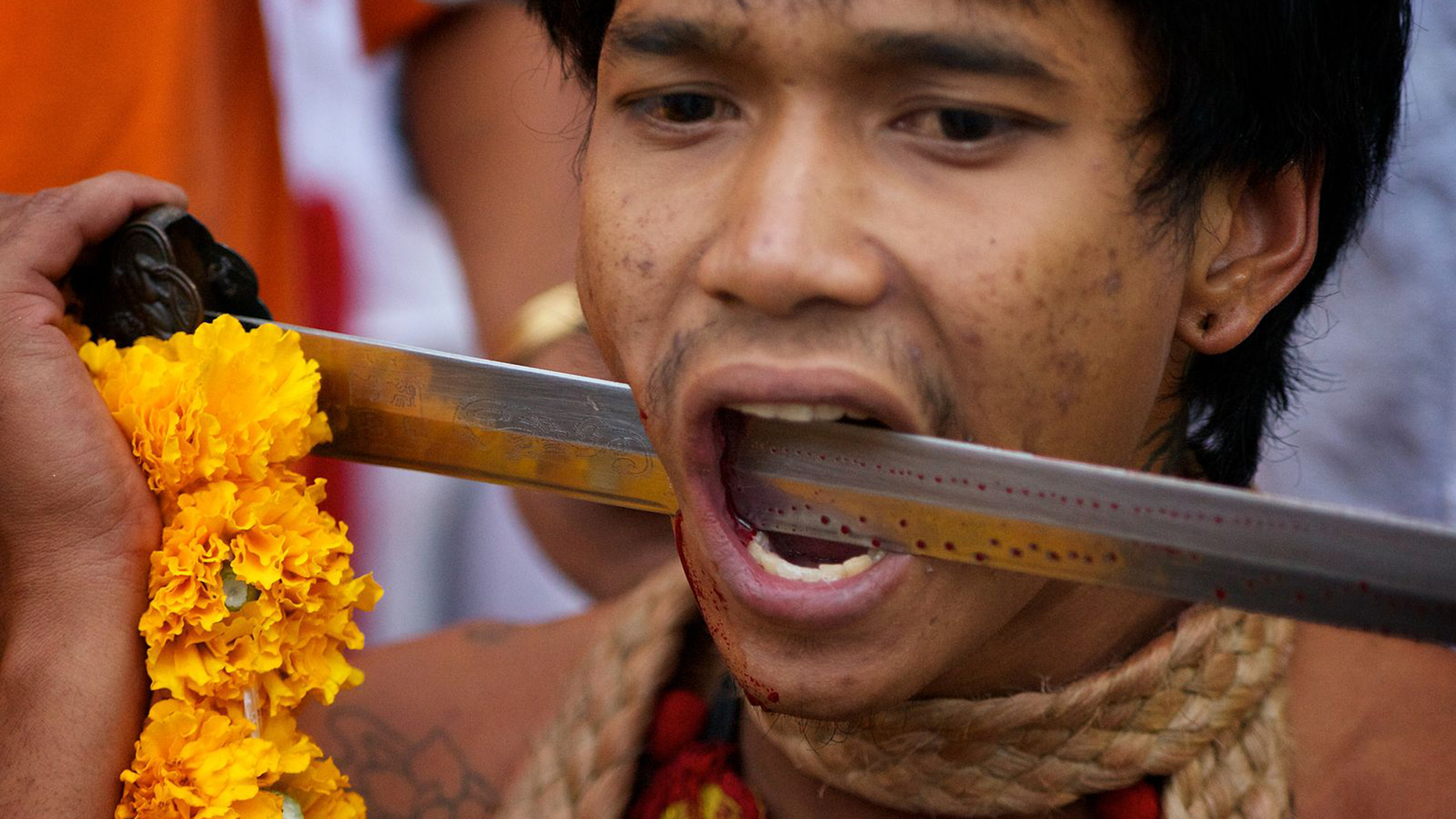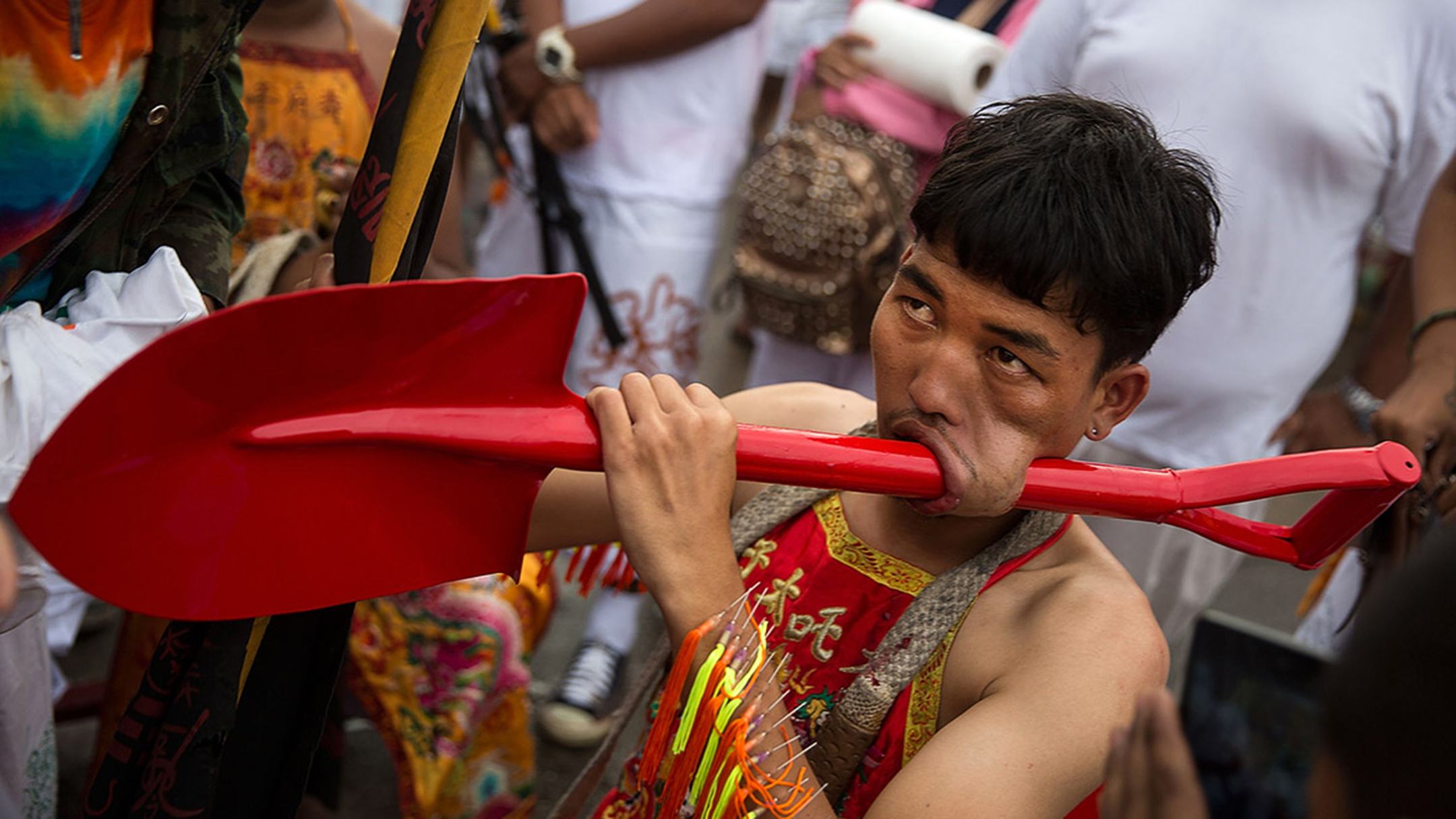Phuket Vegetarian Festival
The Phuket Vegetarian Festival, locally known as “Tesagan Gin Jay," is one of the most intense and spiritually charged festivals in Thailand, celebrated primarily by the Chinese-Thai community. It takes place over nine days in the ninth lunar month of the Chinese calendar, typically in September or October. This festival is a significant cultural event on the island, deeply rooted in history, legends, and rituals, offering an authentic glimpse into the traditions of Phuket beyond its famous beaches and tourism.
History and Legends
The origins of the Phuket Vegetarian Festival date back to the early 19th century when Chinese immigrants, mainly miners, settled on the island. According to legend, a group of Chinese opera performers fell ill with malaria while visiting Phuket. To cure themselves, they observed a strict vegetarian diet and performed spiritual rites dedicated to the Nine Emperor Gods, a group of Taoist deities. Miraculously, they recovered, and in gratitude, the local community vowed to continue these rituals annually. This marked the beginning of the festival, which has grown into a large-scale celebration of purity, spiritual devotion, and cultural identity.
Rituals and Spiritual Intensity
The festival is not just about abstaining from meat; it’s a complex expression of faith, marked by rigorous purification rituals and acts of extreme devotion. Participants, known as “Ma Song" (spirit mediums), undergo ritual piercings and self-mortification to invite the spirits of the Nine Emperor Gods into their bodies. They believe that by doing so, they can absorb the suffering of their community, cleanse their karma, and bring good fortune.
The sight of these Ma Song walking through the streets with swords, spears, and other sharp objects piercing their cheeks, tongues, and bodies is both awe-inspiring and intense. Despite the severe wounds, they appear to feel no pain, which is attributed to their spiritual possession. These acts are not meant for spectacle but as a form of sacrifice and devotion, aimed at bringing blessings to their families and the wider community.
The festival is also marked by daily processions, where participants walk barefoot over hot coals, climb ladders made of blades, and endure other physically demanding rites, demonstrating their faith and resilience. The air is filled with the sounds of drums, firecrackers, and the chanting of prayers, creating an atmosphere of deep spiritual fervour.
Ritual Purity and Vegetarianism
Central to the festival is the adherence to strict vegetarianism, which is believed to cleanse both body and soul. During the nine days, participants follow a strict diet, avoiding not only meat but also dairy, strong-smelling vegetables like garlic and onions, and alcohol. Devotees also abstain from sex, wear white to symbolise purity, and follow a set of rules to ensure spiritual cleanliness. This period of self-restraint is intended to create harmony between body, mind, and the gods, enhancing the spiritual connection to the divine.
Authentic Expression Beyond Tourism
Although Phuket has become a global tourist destination, the Vegetarian Festival remains an authentic expression of local culture, deeply significant to the island’s residents. For the Chinese-Thai community, this festival is more than just a public celebration; it is a sacred and personal practice of spiritual renewal and community bonding. Temples across Phuket, especially the six main Chinese shrines, become focal points of devotion, where rituals are conducted, and sacred ceremonies performed.
Visitors who attend the festival witness a side of Phuket far removed from the tourist-driven images of sun and sea. It offers a raw and unfiltered insight into the island’s cultural heritage, with its vibrant processions, fiery rituals, and the overwhelming sense of collective spiritual energy. For the locals, it’s a time of deep reflection, sacrifice, and an opportunity to preserve their cultural identity amidst Phuket’s modern developments.
In essence, the Phuket Vegetarian Festival is a profound celebration of faith, purity, and community, showcasing the resilience and spiritual dedication of the people of Phuket, making it one of the most powerful and authentic cultural experiences on the island.
Chinese shrines in Phuket Town
There are more than 40 Chinese shrines scattered around the island. Many of them are just small buildings but all participate in the festival. Visitors who want to experience the most of this event should visit the major shrines including the 5 oldest shrines in Phuket; Put Jaw, Jui Tui, Bang Niew, Cherng Talay, and Kathu Shrine. Alternatively, check out the list below.
-
Baan Tha Rua Shrine, Thepkrasattri Road, not far from the Heroines’ Monument
-
Cherng Thalay Shrine, Sri Soonthorn Road, Thalang District
-
Sapam Shrine, Thepkrasattri Road, Koh Kaeo, Phuket Town
-
Yok Ke Keng Shrine, Soi Panieng, Samkong, Phuket Town
-
Samkong Shrine, Yaowarat Road, on the north side of Phuket Town
-
Kathu Shrine, Wichitsongkram Road, Kathu District
-
Put Jaw Shrine, On the corner of Soi Phuthorn, Ranong Road, Phuket Town
-
Jui Tui Shrine, Soi Phutorn, Ranong Road Soi 4, Phuket Town
-
Sui Boon Tong Shrine (also known as Lorong Shrine), Pattana Road, Phuket Town
-
Bang Neow Shrine, Phuket Road, on the south side of Phuket Town
-
Thep Rasi Shrine, Phuket Road, near Robinson Department Store, Phuket town
-
Kiew Tien Keng Shrine, Saphan Hin Park, Phuket Town
-
The commitments
The festival always starts on the first day of the 9th Chinese lunar month (though the pole-raising ceremony is the night before), and for 9 days participants observe the following commitments:
-
Cleanliness of the body during the festival
-
Clean kitchen utensils not to be used by others who do not participate in the festival
-
Wear white during the festival
-
Behave correctly, both physically and mentally
-
Avoid eating meat
-
Avoid sex
-
Avoid alcohol
-
People in mourning should not participate
-
Pregnant women and menstruating women should not attend ceremonies


